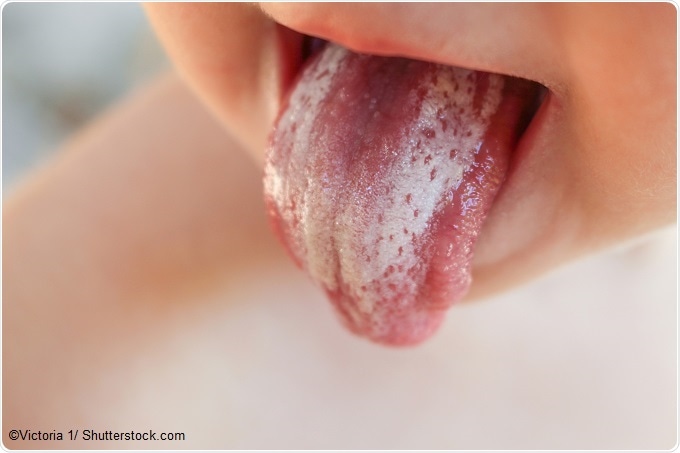A thrush infection of the breast can cause pain and difficulty when breastfeeding. Thrush is caused by infection with the fungus Candida albicans, which often happens after a baby or mother has taken a course of antibiotics.
Antibiotics can decrease the number of “good” bacteria in the body that usually keep harmful microbes in check, thereby allowing Candida albicans to flourish. This may permit Candida infection to take hold. A thrush infection may also occur as the result of cracking of or damage to the nipples, allowing the fungus to spread into the nipple and the breast tissue.

Symptoms of thrush in breastfeeding mothers
Women who experience the following may have a thrush infection of the breast:
- Sensation of pain in the nipples or breast after feeding the baby, when this had not previously been the case
- Pain that lasts for as much as an hour after feeding and is quite severe
- Presence of a fever
- Warm, red patch on the breast
- Itching or burning sensation in the nipple
- Severe pain when baby attaches to breast
- Shower water splashing against the breast is very painful
- Reddening of the nipples after feeding
- Nipples that are cracked and fail to heal
Symptoms of thrush in a breastfed baby
The following symptoms may indicate the presence of oral thrush in a breastfed baby
- An adherent white coating on the tongue
- Creamy white patches on the tongue, inside cheeks, gums or roof of the mouth that are not easily wiped away
- A white coating on the lips
- Nappy rash that fails to resolve
- Unsettled behavior and pulling away from the breast whilst feeding
Treatment
A doctor can diagnose a thrush infection in a baby or mother by taking swabs from the mother’s nipples and from the baby’s mouth, which are then sent for laboratory analysis. The mother and baby are both treated, even when the baby has no signs of infection in the mouth, because the baby could have a latent infection which could re-infect the mother during breastfeeding. The main medication used to treat a thrush infection of the breast is miconazole, an antifungal cream that is applied to and around the nipple after the baby is fed. The main treatment for a baby with a thrush infection is a liquid suspension of nystatin which is gently applied around and inside the baby’s mouth.
References
- https://www.breastfeedingnetwork.org.uk/
- http://www.nhs.uk/Conditions/pregnancy-and-baby/Pages/breastfeeding-and-thrush.aspx
- https://www.stgeorges.nhs.uk/wp-content/uploads/2013/10/48_Community+services+Wandsworth_Breastfeeding+with+thrush.pdf
Further Reading
Last Updated: Dec 29, 2022